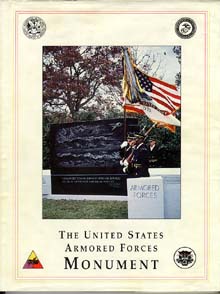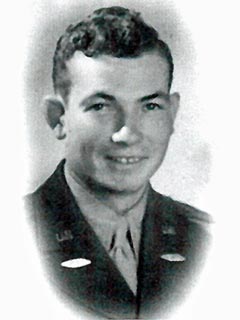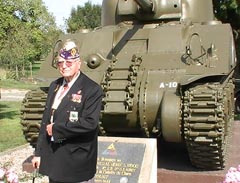|
Colonel James H. Leach -
"The sweetest man who ever lived,"
Marion Leach, 2007
Colonel James H. Leach was born in Houston, TX on April
7, 1922. He began US Army service when he joined the Texas National Guard
on June 19, 1938 at the age of 16.
When Gen. Patton began his summer dash across France in
1944, Jimmie Leach was commander of Company B, 37th Tank Battalion, 4th Armored
Division, serving under the legendary Lt. Col Creighton Abrams. He had
trained for four years as a tanker. He was uniquely prepared.
Jimmie was wounded five times in Europe, received the
Distinguished Service Cross for his heroism at Bigonville on Dec 24, 1944 and
three days later he captured and guarded the entry of the 37th into Bastogne in
relief of the 101st Airborne.
After WWII, Jimmie served in Korea on the island of
Cheju, moderating the angry wrath among island natives, off-island Koreans and
returning Koreans who had served in the hated Japanese Army.
He married Marion Heirs Floyd in 1951 and spent four years in
Germany guarding the Fulda Pass against the seemingly inevitable roll of Russian
tanks west into the Rhineland.
He assumed Armored Brigade Command as a Colonel in
the late 1960's, was assigned to Vietnam as senior advisor with the 5th ARVN division,
then, in 1969 assumed command of the 11th Armored Cavalry, replacing George
Patton IV. His aggressive leadership of the 11th is still remembered with
awesome respect by his subordinates and his peers. For the second time, in
his second war he heard the report that, "Jimmie Leach is the bravest man I ever
knew."
Jimmie Leach led the Army's Armor Branch with skill and
compassion in the early 1970's, managing the portfolios of some 6000 Army officers.
Gen Fred Franks and the current Secretary of the Department of Veterans
Affairs, Gen Eric Shinseki, report that Jimmie was responsible for their very
careers as he fought to keep these future General Officers in the Army although
each had lost a limb to wounds in Vietnam.
His defense of one young officer earned him the enmity
of Gen William Westmoreland and he was passed over for promotion as General
Officer. His son describes the scene at his home, with great friend, Gen
Creighton Abrams on hand offering support, but not interfering with this final
decision, as a wake.
Jimmie Leach retired from the Army and worked for
Teledyne for 13 years from 1972-1985. He kept his service to the Army
paramount and carried out the legislative and financial work leading to the
United States Armored Forces Monument near Arlington National Cemetery.

Jimmie Leach now lives in South Carolina where, over
the last twenty-plus years he has supported the causes of soldiers and
soldiering with unflagging zeal. He has visited the battlefields of France
and the Ardennes more than ten times, placing monuments and memorials to the men
who came there with him - and never came home. He has made peace with his
enemies in Germany - and Vietnam and traveled through both South and North
Vietnam to relook at the places and events there.
Jimmie works hard still to effect the expansion of the
Beaufort National Cemetery in Beaufort, SC, a cemetery established under
President Lincoln whose growth is threatened by neighborhood encroachment.
In 2006, Jimmie Leach spoke at the James H Leach
ReadinessCenter, a new SC National Guard facility built with funds wrested
from Congress through Jimmie's unremitting pressure on the late Sen. Strom
Thurmond. He reminded the local Guardsmen, who were on their way to
Afghanistan, that they continued a proud National Guard tradition of more than
two centuries, to which he had been attached for nearly 70 years. And his
message was clear: soldiers must train for war and never become complacent
with the present situation.
Jimmie Leach and I have spent hundreds of hours
recording his story. In September 2007 I was with him in the Galt Hotel in
Louisville when a middle aged man approached me and said, "Is that Col. Leach?"
I said yes and he said to Jimmie, "I want to thank you for saving my life in
Vietnam."
His story will unfold in time across this special
place.
Col. James H Leach died at 87 on Dec. 17, 2009.
He was driving his car near his home in South Carolina when he suffered a heart
attack. He was with us for 32031 days. Very few of them were wasted.
jimmieleach.us.
Matt Hermes
Copyright 2010 Matthew E Hermes
|
1. American
Antecedents
(An excerpt from Tanker Jimmie Leach. In this brief
segment Jimmie Leach describes his family back to his Confederate grandfather at
Vicksburg and his Cherokee mother whose history is unfortunately lost. )
V icksburg, April 16, 1863. Admiral David Porter’s Mississippi
Squadron ironclads made their bold dash past the bluffs of Vicksburg dominating
the Mississippi from the east. From these heights you can see the bend
upriver as the Union ships came straight toward the Confederate Artillery; easy
pickings for the River Batteries of Col. Edward Higgins; the 1st Louisiana
Artillery, the 8th Louisiana Heavy Artillery, the 1st Tennessee Heavy
Artillery and its three Tennessee Batteries under Col. A. Jackson. Nevertheless
the squadron slipped south of the dominating batteries, thence to go ashore with
thousands of Grant’s men in its campaign to encircle and capture Vicksburg from
the rear. For nearly three months of siege and starvation, nearly thirty
thousand Confederates withdrew further and further toward the river, came closer
and closer to annihilation through lack of food and sustenance. On July 4,
1863, Lt. Gen. John C Pendleton surrendered his Army after gaining an important
concession; parole for every one of his soldiers.
David
Watts Leach, Sergeant of the Confederate 8th Louisiana Heavy
Artillery, a native of the union mountains of western Virginia, was now a man
free from the obligations of war, in fact, he was now forbidden to participate
in the conflict. “Get lost, Reb,” the Union commanders said. “If we see you
again there will be trouble.” So Sgt. Leach crossed the Mississippi River and
walked west 200 miles across Louisiana to Texas. Just across the Texas line he
stopped in a small settlement, Elysian Fields. He had been invited to Elysian
Fields by an Army friend’s offer to stop by if he was in the area. He rapped at
the door and Martha Elizabeth Fuhrr, dressed carefully in black, opened it. She
was a widow now and had gotten the word her husband was dead while David Watts
Leach was on the road to Texas. Martha Elizabeth Fuhrr was childless. She
married David Watts Leach and she bore him five children, four sons and a
daughter. David Watts and Martha Elizabeth waited before choosing David’s
namesake. Their last son, born in 1879 became David Watts Leach, Jr.
David
Watts Leach had been a carpenter and his sons Bruce and David Watts Leach, Jr.
followed him into carpentry. Several of the young Leach’s bought land in that
East Texas basin and soon were bathed in oil. David , however, brought very
little out of the oil patch when he later moved to Houston with his family.
When David arrived in Houston the City was nine years old. There was not a
paved street in the city. Every two or three blocks a mule-driven trolley would
move down to one end of the line and the driver would bring the mule around to
the other end and go back. It was so muddy people walked on duck boards laid on
the mud to reach the trolley. David Jr. graduated from Central High School in
Houston. The three carpenters, David Watts Leach, David Jr. and Bruce Leach
were ambitious and strong willed and believed in the inherent value of work. The
three men started the Carpenters and Joiners of America local there in Houston,
Local 219. David Jr. married Della Zorn soon after the turn of the 20th
century. He fathered David Watts Leach III and then a daughter but his marriage
foundered. He was single and out of contact with his children but working with
his father and brother Bruce in Houston for a number of years.
In 1920
David Jr. was married again to Lena Ellen Curry. Lena, born in 1889, in
Lampasas, Texas, northeast of Austin, had recently moved to Houston after an
unhappy attempt at marriage in nearby Humble. After her wedding there to a
young Catholic man, her husband’s mother interfered, rejecting her new
daughter-in-law, ostensibly because she was not Catholic. The marriage was
annulled. Lena’s family background is clouded by the loss of the family bible a
century ago. But we know Lena was at least one-half Cherokee Indian whose
ancestors had been driven west to Oklahoma along the Trail of Tears.
The
marriage of David Watts Leach Jr. and Lena Ellen Curry collapsed, too, and the
couple divorced. Lena quickly married a lineman for the Houston Power and
Light Company, James Herbert Shipps. James Herbert Shipps Jr. was born April 7,
1922.
Jimmie
Leach says, “I was given Shipps name, James Herbert Shipps. Now momma had
already left Dave and married Shipps, but apparently Shipps divorced her because
she had me in the basket when she married him. So I was Dave Leach’s son that
she was carrying. But momma had an insurance policy, Texas Prudential Insurance
for $1000, James Herbert Shipps, Jr.”
“Dave
took her right back when I was born," Jimmie said. “And they entered me in
kindergarten as Jimmie Leach. When I was nine years old, dad, who drank
heavily, showed his anger and momma said, ‘He’s not your daddy!’ But he was.
Because I look like him, our hands are the same; we wear the same size shoe. He
had a larger head than I; his hat would hit my ears. But David Watts Leach, Jr.
and I look alike. And too many commonalities and he’s the only Daddy I knew and
I didn’t want anything to do with Shipps, I never saw him in my life.”
(An excerpt of a work in progress)
3/4/09
Questions or comments: Contact Matt
Hermes
|


![]()
